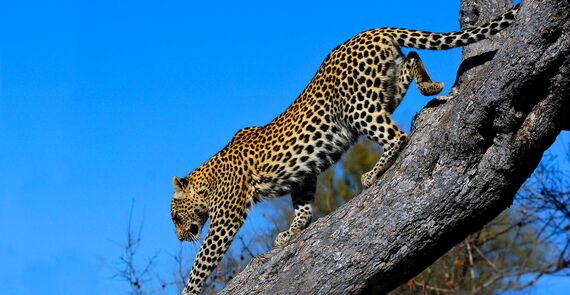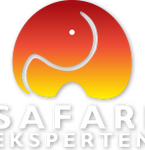Enjoy the Experience of a Lifetime Go On a Safari to South Africa
South Africa often uses this slogan in its own marketing, and for good reason. From the burning summer heat of the Kalahari Desert in the north west to the snow covered peaks of the Drakensberg mountains in winter to the east of the country. From the fantastic safari parks with their classical African wildlife and the sub-tropical Indian Ocean beaches of the north east, to world class whale and shark safaris along the rugged rocky coastline, touched by the Antarctic, in the south west. From small traditional villages with thatched mud huts in the KwaZulu Natal to the beautifully located big city of, Cape Town, with its international feel and wonderful wine districts and culinary resources in its ”back yard”.
Yes, what more could you possibly wish for?
An african country on the right path
South Africa is southern Africa's biggest country in every way, with a size of more than 1.2 million km2, a population of over 55 million. Economically it is the continents only representative in the BRICS-association, together with Brazil, Russia, India and China – the world’s new great economic powerhouses.
What to do in South Africa?
Your arrival in South Africa typically occurs in one of the country’s two largest cities, Johannesburg or Cape Town. They both have large international airports with good direct connections to a large number of European cities.’
The biggest, most famous and most visited safari-destination is the Kruger National park and the private reserves to the west, which together form what is known as Greater Kruger. Here you can find accommodation to suit all tastes and budgets, right from camping in your own tent in the public section of the park, to extremely luxurious camps in smaller concessions within the park itself or in the private reserves to the west.
Around South Africa you can find many private reserves in very different natural habitats. Of these Phinda, close to the Indian Ocean north of Durban, Madikwe between Pretoria and the border with Botswana, and Tswalu in the Kalahari desert, north of Kimberley the capital of the diamond industry, near Botswana, are the very best. These reserves are big, are home to many animals. They are very professionally managed and offer comfortable camps and lodges.
Cape Town and the city’s spectacular surroundings can offer something very special, including whale and shark safaris and world class food and wines – and the city is the starting point for a journey on Rovos Rail, which aspires to be the most exclusive railway train in the world.

Highlights in South Africa
- Classic safaris with plenty of animals and sublime level of comfort and service in Greater Kruger
- Top quality private reserves with good populations of animals, in nearly all parts of the country.
- Beautiful Cape Town and its surroundings, with whale and shark safaris, and superb food and wines
- Luxurious train journey through fantastic landscapes, a safari in itself
Wildlife in South Africa
Highlights:
- The Big Five: Elephant, rhinoceros (both black and white), buffalo, lion and leopard are all found in South Africa, primarily in the north east
- Good population of animals such as hippopotamus, giraffe, cheetah, hyena and African wild dog in many places.
- Rich bird life in a wide range of national parks and private reserves, many of which are free from malaria
- Large populations of buffalo, hippopotamus, elephant and big antelopes in the south
- Excellent whale and dolphin safaris along the Indian Ocean and the Atlantic Ocean to the south.
- The south coast is in a class of its own when it comes to having a chance to see great white sharks
South Africa is one of the biggest countries on the continent, and perhaps the most varied when it comes to climate, nature and vegetation types, therefore it also has a very diverse fauna. From “Classical Africa” in the north east, especially in and around the Kruger national park, via the desert landscapes of the north west and the cooler, sometimes harsh climate of the south coast, with its unique landscapes bordering the Indian and Atlantic Oceans, the country offers a wealth of animal life.
The Kruger national park in the north east corner of the country, together with the wide range of private reserves near its western border, the majority of which open onto the Kruger and share animals with it, must be considered as one of the continents great attractions when it comes to big game. Not least, the district is renowned for being one of the best places to see the famous “Big Five”, namely elephant, rhinoceros (both black and white), buffalo, lion and leopard, but it is also home to fine populations of many other classic species of savannah animals such as hippopotamus, giraffe, cheetah, hyena and African wild dog, as well as a wonderful birdlife. The same animals can be seen in a range of smaller national parks and private reserves in the north and north east, a number of which lie in districts that are free from malaria.
To the north west South Africa shares the Kalahari Desert with its neighbouring countries of Botswana and Namibia. Here it goes without saying that the environment is drier and dominated over large areas by sand, dunes and sparse vegetation. However you can still find good populations of lions, leopards, cheetahs and hyenas, that all prey on the animals that are specially adapted to life in the desert, such as springbok and gemsbok. It is also a great place to see birds of prey.
Along the south coast of South Africa, where the Indian and Atlantic Oceans meet, it is the stretch between Cape Town and Port Elizabeth that is the most visited. Here the vegetation is absolutely outstanding, and there is nowhere else similar to it on earth. The numbers of big game animals here are limited, but you can find a number of rarities, such as the small Cape mountain zebra, and the beautiful bontebok, together with an impressive number of birds, the population of African jackass penguin being a particular surprise for many visitors. However when it comes to its animal life the south coast is perhaps best known for its marine creatures. It is amongst the best places in the world to see whales and dolphins and impressive seabirds such as, for example, albatrosses and it is in a class of its own if you want to see one of the oceans ultimate predators, the great white shark.
Attractions
Practical information for tours to South Africa
Check-in:
You may check in 20 kg (business class 30 kg.) of bagage per person free of charge plus 1 item of hand luggage, with a max. weight of 7 kg - unless otherwise informed in your itinerary.
REMEMBER, sharp pointed or edged items eg. knives, scissors etc. must not be carried in hand luggage, but be packed in your checked in baggage.
Visa:
For most nationalities it is no longer necessary to apply for a visa in advance to visit South Africa, you just need a passport that is valid for at least 30 days after the date you plan to leave South Africa. You will be issued with a tourist visa in your passport on entry, which is normally valid for 90 days. Keep yourself up to date with the latest rules by regularly visiting the Foreign Ministry’s website (click on the link).
Important information for visiting South Africa with children:
New regulations for entry and exiting South Africa with children under 18 years of age were introduced on 01st June 2015:
If both parents are travelling with a child under 18 years of age, you must bring the child’s birth/baptism certificate.
If one parent is travelling with a child under 18 years of age, you must bring the child’s birth/baptism certificate together with a document giving power of attorney form the other parent, that give the child permission to enter/leave South Africa.
In the child is travelling without its parents, the birth/baptism certificate must be accompanied with documentation that shows that you are entitled to travel with the child in South Africa during the period specified.
If you are travelling with an adopted child, in addition to the birth/baptism certificate you should also bring the adoption certificate.
These regulations were introduced by the South African authorities to help prevent trafficking in children.
Please be aware that it is very important that you bring the correct documentation in connection with travelling with children in South Africa.
ALL Documents must be in English. It is your own responsibility to ensure you bring the correct documentation. If you are not in procession of such you will be dismissed at check in and unable to travel.
We recommend you contact your nearest South African Embassy for advise pertinent to exactly your family situation.
Passport:
Everybody travelling to South Africa MUST have two blank pages next to each other in their passport when it is open. If you don’t you will either be unable to check-in to your flight or denied entry on your arrival in South Africa.
Vaccinations:
In general it is recommended that you have vaccinations against hepatitis A. In some areas it is recommended you take a course of malaria preventative tablets (we recommend the product Malarone). Recommendation may change at any time, following the actual situation in the country. Contact your doctor or a vaccination clinic in good time before departure to discuss your exact requirements. See also www.vaccines.org.
Currency:
The local currency is the South African Rand, 100 Rand is worth circa €6 (23/11/17)
We recommend you exchange a small amount of currency on arrival for the first few days of your holiday.
Visa, Mastercard and most other international credit cards can be used in hotels and large shops, but not in all safari lodges, here US$ or EUROs are preferred.
Travel Documents:
Your flight tickets and travel itinerary will be sent approx. 10 days before departure.
Medicines:
We recommend you bring any medicines prescribed to you by your doctor with you, together with: Painkillers, anti-diarrhoea tablets, sun cream and insect repellent. You will find well stocked pharmacists in South Africa.
Time difference:
In our summer the time in South Africa is the same as CET summertime.
In our winter the time in South Africa is 1 hour in front of CET.
Electricity:
You will find electricity in the vast majority of hotels, lodges and camps – 230 volt. But please note that South Africa use different plugs and sockets than Europe, so you should bring or buy an adaptor.
Indemnity Form:
If you are taking part in a photo-safari, it is quite usual to be asked to sign an Indemnity Form before the start. Briefly this means that you are signing to confirm that you realise you are in an area where there are wild animals and that you accept that you are taking part at your own risk, and that the safari company and its employees are not at fault if an accident occurs.
Equipment/clothing:
Generally we recommend to bring light weight cotton clothing, that can “breathe” and dry quickly. Part of the tourist season, from May to September, is South Africa’s winter. Nights- and early mornings can be cool at this time of year, so we recommend bringing an extra, warm sweater/wind breaker/fleece.
Additionally we recommend you bring the following
- 1 broad brimmed sunhat
- 1 pair of sun glasses
- 1 camera with plenty of memory cards
- 1 pocket-sized torch (with extra batteries)
Refrain from bringing too many clothes, as laundry service is available in nearly all hotels and lodges.
Binoculars
Remember to bring binoculars! 7 or 8x magnification is ideal, as a magnification of 10x or above has a tendency to blur the image because of heat haze. If possible, bring 1 pair of binoculars per person, as they will be used a lot.
Tipping:
Foreign travel and tipping have unfortunately gone hand in hand for generations. It is a very difficult field to give advice on, as it largely depends on an individual’s level of satisfaction.
In camp 60-80 rand per day per guest to be shared between all the staff. Most hotels/lodges/camps have a staff tip box. For your guide we would suggest 5-10 Euro per person per day (or the equivalent in another currency), if you are satisfied with what he has done for you. The same amount should be shared between other staff in camp, so that the cooks, waiter, maids, gardeners and security guards all get a share.
We consider that the above guidelines on tipping don’t apply to children travelling in the company of adults.
Duty Free purchases:
We recommend that you buy any duty free goods you require in the airport, as the selection available on aircraft is often limited. Spirits are inexpensive in South Africa, with the exception of French cognac.
Shopping:
The range of goods available, especially in large towns, is very varied and generally at a lower price than in Europe. South Africa is especially well known for its good wines, diamonds, jewellery and handicrafts.
Driving License:
Travellers to South Africa who wish to hire a car must be in procession of an international driving license.
Insurance:
We strongly recommend you take out both cancellation- and travel insurance.
Photographs:
We greatly appreciate receiving photographs from our customers, which may come to use in our marketing materials. We would be pleased to receive your photos as soon as possible after you return home. If we use one or more of your photos we will reward you with a DKK. 500- credit voucher, which can be used toward your next tour with us.
Misunderstandings/emergency telephone:
If, against all expectations, any misunderstandings arise during your holiday: problems of one form or another that you feel you can’t solve yourself, you can contact us during office hours (Monday- Friday 8.30-17.00 CET) on tel. (+45) 56 36 25 45 or fax. (+45) 62 20 25 42, or on our mobil no. (+45) 30 26 25 40, which is available 24 hours a day. Our mobile phone number is intended for emergency situations, so we ask you only to use it as such, so anybody who needs help can receive it.
It is too late for us to solve any problems or mistakes after you return home. Therefore, please be aware that it is extremely important that you inform us immediately if any insoluble problems arise. We can only act on any such complaint if we have been properly informed at the correct time.
After your return home:
We are always pleased to get the “latest news from abroad” after you return home. It is actually very important for us, as it allows us to keep an eye on what is happing “in the field”. In this way we can work on developing and improving our tours. Therefor - whether it is praise or criticism - we would like to hear from you.
We hope that above gives you answers to the questions that you naturally have before departure. If you have any further questions, please do not hesitate to contact us - our job is, first and foremost- to serve our customers.
Askari Tours is naturally a member of the Danish Association of Travel Agencies, The Travel Guarantee Fund, and The Board of Appeal for Package Holidays.










































